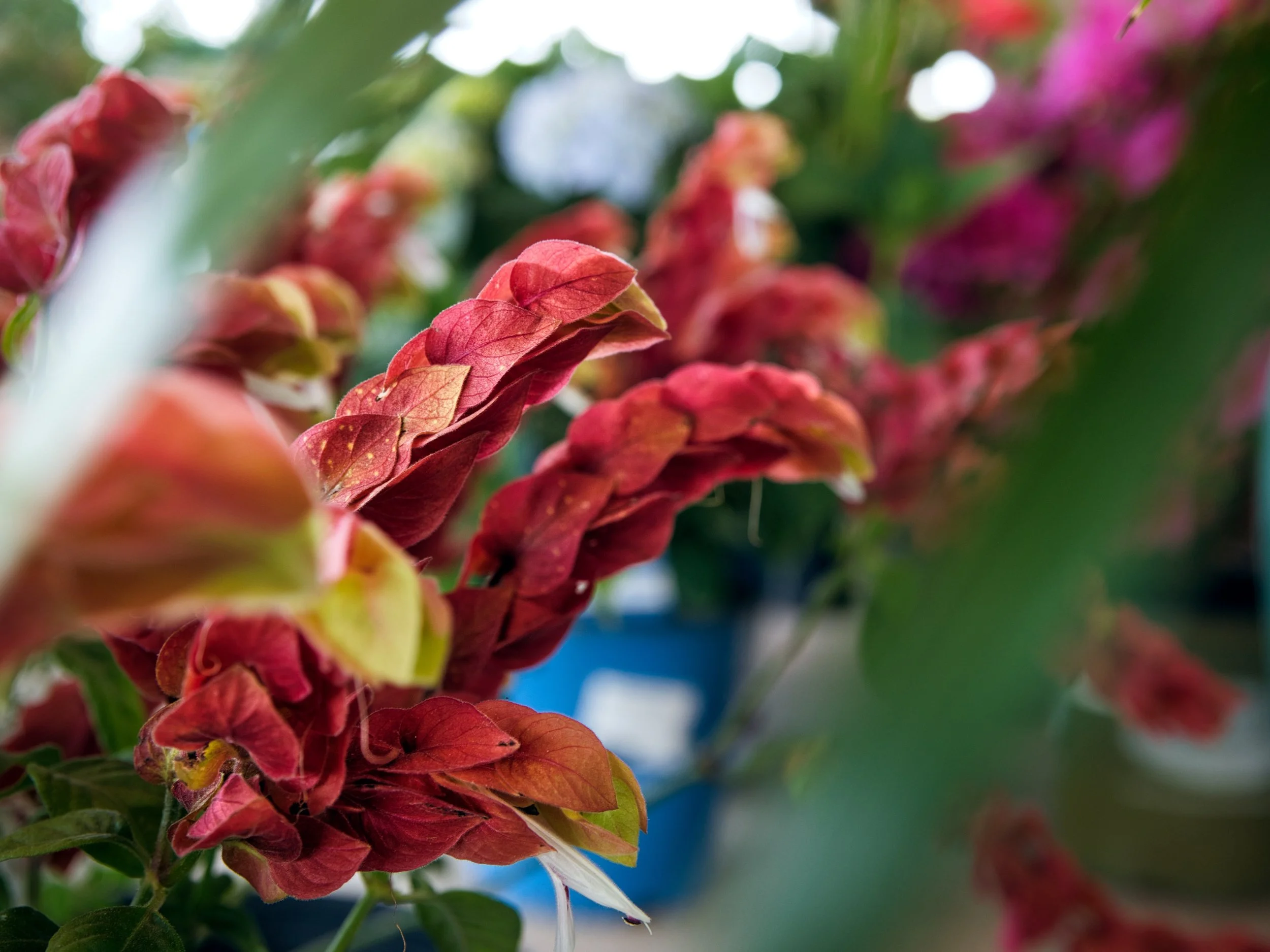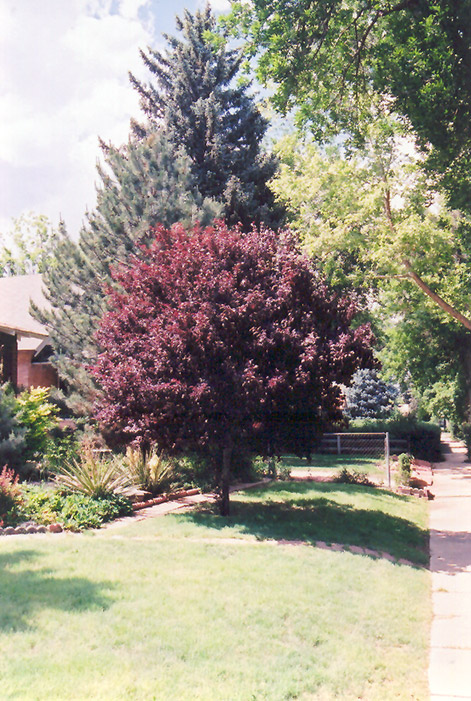Purpleleaf Plum
Prunus cerasifera 'Atropurpurea'
Plant Height: 20 feet
Flower Height: 25 feet
Spread: 15 feet
Sunlight:
![]()
Hardiness Zone: 4b
Other Names: Myrobalan Plum, Pissard Plum
Description:
A popular colorful accent tree brings a cloud of pink flowers in spring with deep purple foliage all season long, delivers a bold statement in the landscape; use as a solitary specimen in the front yard or as a street tree; best pruned in June-July.
Ornamental Features
Purpleleaf Plum is smothered in stunning clusters of fragrant white flowers along the branches in early spring before the leaves. It has attractive deep purple deciduous foliage. The pointy leaves are highly ornamental and turn an outstanding burgundy in the fall. The fruits are showy purple drupes displayed in mid summer.
Landscape Attributes
Purpleleaf Plum is a deciduous tree with a shapely oval form. Its average texture blends into the landscape, but can be balanced by one or two finer or coarser trees or shrubs for an effective composition.
This tree will require occasional maintenance and upkeep, and is best pruned in late winter once the threat of extreme cold has passed. It is a good choice for attracting birds to your yard. Gardeners should be aware of the following characteristic(s) that may warrant special consideration;
- Insects
- Disease
Purpleleaf Plum is recommended for the following landscape applications;
- Accent
- Shade
Planting & Growing
Purpleleaf Plum will grow to be about 20 feet tall at maturity extending to 25 feet tall with the flowers, with a spread of 15 feet. It has a low canopy with a typical clearance of 4 feet from the ground, and is suitable for planting under power lines. It grows at a medium rate, and under ideal conditions can be expected to live for approximately 30 years.
This tree should only be grown in full sunlight. It does best in average to evenly moist conditions, but will not tolerate standing water. It is not particular as to soil type or pH. It is highly tolerant of urban pollution and will even thrive in inner city environments. This is a selected variety of a species not originally from North America.


